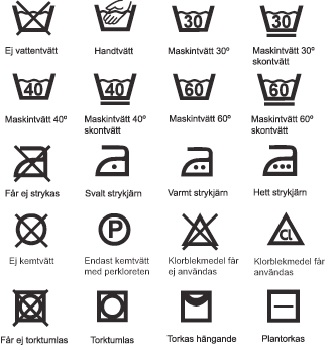So the nursing home can create quality through conversations with residents and relatives
This article is translated with AI and written from a Swedish perspective. Hopefully, it can inspire those interested from other countries.
The conversation is a fundamental part of care and creates a safe and quality care environment. By using different conversation techniques and adapting communication to individual needs, the elderly care can strengthen relationships with both the residents and their relatives. When the staff actively listens, confirms and builds trust, the conversation becomes a path to better and more person-centered care.

How the nursing home creates quality conversations with residents and relatives
Conversation is a central part of care and service at the nursing home. By actively listening and communicating in a respectful manner, the staff can create security, participation and understanding for the residents' needs and wishes. How can conversation strengthen care and what can employees consider to attract meaningful conversations?
The importance of conversation in care
The conversation is a key to understanding the residents' life situation, needs and wishes. A lot happens in a nursing home during all hours of the day - joy and sorrow, memories and wishes, habits and quirks. A good conversational climate strengthens relationships, creates security and can contribute to increasing the quality of life for the residents.
Communication with relatives is also important. By creating space for conversations with both the residents and their relatives, the staff can build trust and ensure that the care is person-centered and adapted to the individual's needs.
Different types of conversations
Many different types of conversations occur at the nursing home. The staff need to adapt their way of talking based on the purpose of the communication.
Investigative conversations
When moving into the nursing home, the staff need to get to know the new resident and their relatives. Here, open-ended questions are important to create a complete picture of the resident's life history, habits and needs. It is also crucial to let the elderly person answer the questions themselves and not let relatives or staff take over the conversation.
Guiding conversations
By informing about activities and opportunities at the home, the staff can motivate residents to participate in social contexts and thereby increase their quality of life. It's about inspiring without pressure.
Supportive conversations
In everyday life, many conversations are about encouraging the resident to maintain their independence. For example, guiding someone to dress themselves instead of helping immediately can strengthen the individual's own ability and confidence.
Existential conversations
Many elderly people ponder life's big questions. By creating a safe atmosphere and listening without judging, the staff can support the residents in their thoughts about life, death and what has been.
The importance of listening in conversation
Active listening is at least as important as speaking. Sometimes it's joked that we have two ears and one mouth because we should listen twice as much as we talk. Listening is about more than hearing – it's about truly understanding. Some important techniques to improve conversation are:
- Affirmative listening: Nod, smile or hum to show that you are engaged.
- Open questions: Questions starting with "what", "how" or "tell" invite longer answers and a deeper dialogue.
- The mirroring method: Summarize and repeat parts of what the resident says to show you are listening and have understood correctly.
- Pause and patience: Elderly may need more time to formulate their thoughts. Be patient and let the conversation take its time.
If the resident asks a question you can't answer, be honest and offer to find out the answer. It builds trust and shows that you take the resident's concerns seriously.
Techniques to improve conversations
There are several conversation methods that can be useful in elderly care:
- Motivational Interviewing (MI): A method used to support the individual in change processes, for example in diet and lifestyle changes.
- The Validation Method: A technique for meeting and confirming feelings in people with dementia.
- Storytelling conversations: Allowing residents to share their life stories can provide valuable understanding and create meaningful encounters.
Reflection questions - conversation techniques
Care staff:
- Do you ever find it difficult to have a good conversation? How do you handle it?
- Have you received training in conversation techniques and would you benefit from it?
Manager, nurse, occupational therapist and physiotherapist:
- Do you have a good conversation climate in the unit?
- Is there a need for training in conversation techniques to strengthen communication with residents and relatives?
Residents and relatives:
- Do you feel that there is a good conversation climate in the unit?
- Do you feel that the staff really listens and is engaged in the conversation?
Erland Olsson
Specialist nurse
Sofrosyne - Better care every day

Aktuellt i media
- 2025-02-20 04:00 13 Hygien
- 2025-02-17 04:00 12 Personlig omvårdnad
-
2025-02-12 04:00
04 Bemötande
So the nursing assistant maintains good conversations - the key to safe and clear communication
info - 2025-02-10 18:41 13 Hygien
- 2025-02-09 04:00 10 Aktivitet o funktionsbevarande arbetssätt
-
2025-02-06 04:00
05 Planering
Are you planning the content of the residents' everyday life and do you carry out the planned social activities?
info Foto: Mostphotos
Foto: Mostphotos




